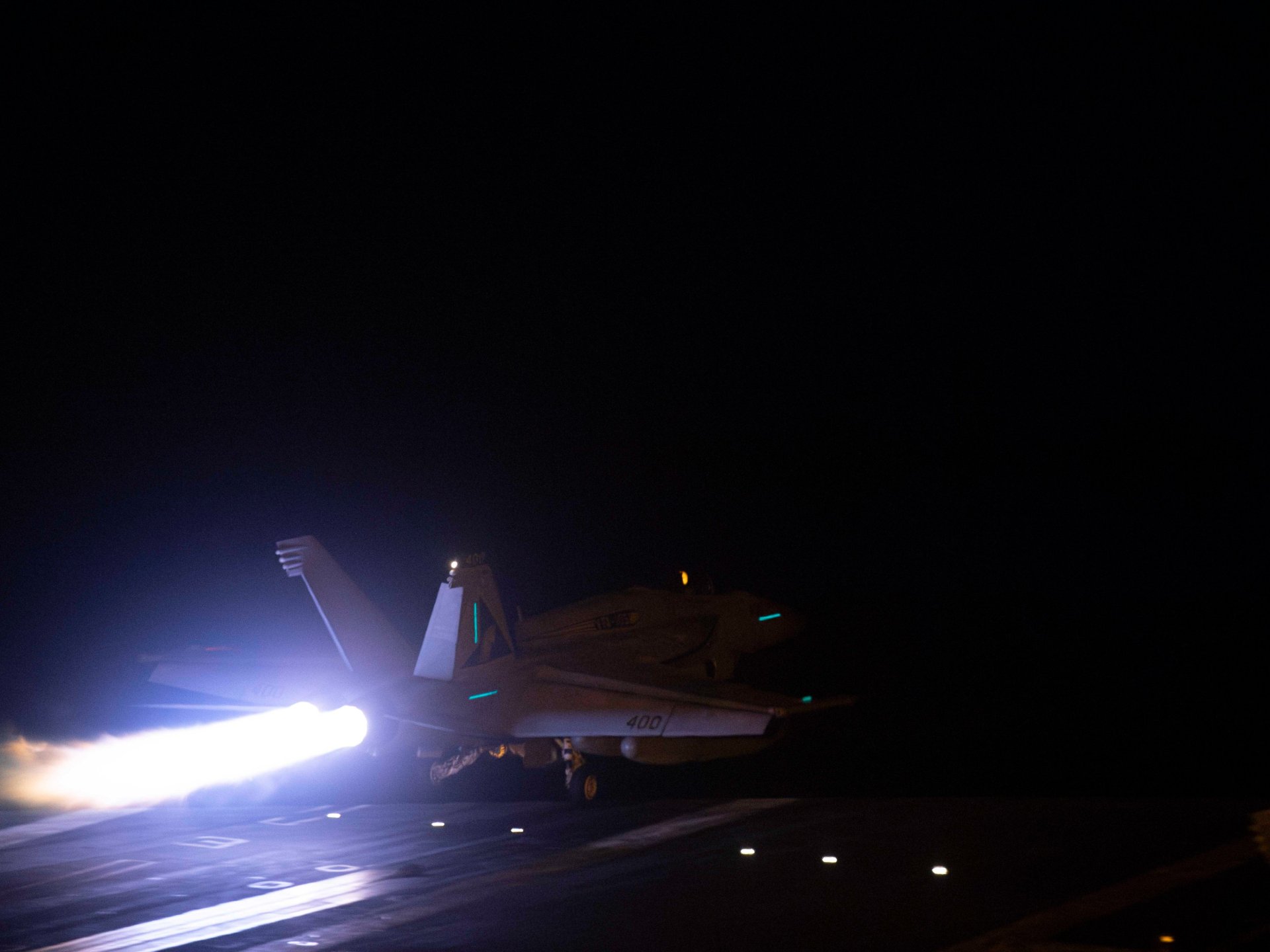American and British warplanes carried out air strikes on some points in the Yemeni cities of Sanaa, Hodeidah and Taiz in the Red Sea (Anatolia)
London -
The United States and Britain continue their strikes in Yemen on what they describe as military targets of the Ansar Allah Houthi group, and while Washington appears to be the leader of these operations, London - also - enthusiastically defends the strikes and considers them “legitimate,” as British Prime Minister Rishi expressed. Sunak in front of his country's parliament.
While most Western countries distanced themselves from these operations and contented themselves with support through statements, some of which chose silence, London insists on participating in them to secure the Red Sea from Houthi attacks, and Sunak does not fear the cost of this political participation, which has appeared to be the subject of a political consensus - at least - between my two parties. Conservatives and Labour.
But the state of preoccupation may exist among the British military commanders, who know better than others that the current situation of the British Army does not allow them to follow much of the American operations, given its declining capabilities, especially in terms of the number of soldiers and the extent of the readiness of naval vessels capable of participating in operations to secure the Red Sea.
Past glories
The political and sometimes even military decisions in London are always driven by the desire to restore something of the glories of the “British Empire,” and this desire returned after the withdrawal from the European Union under the slogan of “Global Britain,” which has become a political and military doctrine whose goal is to confirm the country’s strong return to the international arena.
For this purpose, Britain gradually increased its military spending until this year it exceeded 2.5% of the gross domestic product, making it among the highest in Europe.
But this generosity in funds is offset by a hemorrhage in men, as the British Army suffers from a crisis in recruiting soldiers, and their number currently stands at 76,000 soldiers, and according to some estimates, this number may reach 52,000 during the next ten years, noting that in the year 2003 (the year... Invasion of Iraq) The number was about 103 thousand soldiers.
The British Army faces the dilemma of convincing young people to join it, due to low salaries and services and the state of shock that has still persisted since the wars in Iraq and Afghanistan.
Former British Defense Secretary Penny Mordaunt tweeted this week warning of a decline in the size of the British naval fleet, and that her country may lose power to countries such as Russia and China.
"small fleet"
The former minister accompanied her warning with statistics indicating the decline of this fleet from 232 pieces during World War II to about 68 pieces in recent years, including two modern aircraft carriers, the latest of which is the Queen Elizabeth aircraft carrier.
The decline of the fleet is not the only obstacle to the British Army undertaking the military movements it wants anywhere in the world. Rather, there is a factor of readiness, after the collision of two British ships participating in the operations to secure the Red Sea and their departure from service, leaving only one ship participating in the operations.
The British newspaper "The Telegraph" revealed that London is unable to move the aircraft carrier "Queen Elizabeth" to the Red Sea, because there is no team capable of moving the support ship "Fort Victoria", whose mission is to secure ammunition, fuel, and all the necessary needs of the aircraft carrier and warships. Accompanying the fleet participating in any combat operation.
According to the journalist, the British army is facing difficulty in recruiting appropriate military personnel, and currently the aircraft carriers “Queen Elizabeth” and “Prince of Wales” are located in the port of “Porsmouth” in southern Britain.
Since its exit from the European Union, Britain has announced more than one naval operation, with a focus on the Black Sea to confront - what London says - is the growing Russian threat, in addition to moving nuclear submarines towards the Pacific Ocean with the Americans.
It also secured the North Sea with the outbreak of the Ukrainian-Russian war, and has now added to it the process of securing the Red Sea, all of which are huge operations and require a fleet that appears - now - to be unavailable to Britain.
Attachment to the Americans
Former British Prime Minister Boris Johnson was not wrong when he said in his farewell speech to Parliament, “My advice to the prime minister who will come after me is to remain attached to the Americans.” This has always been London’s policy, especially with regard to the security and military aspects.
This explains why Britain is the only one that participated with the United States in the air strikes directed against the Houthis in Yemen, and London sees in this operation another opportunity to prove to the Americans that they are the closest and strongest military ally capable of moving quickly when necessary or - rather - when Washington sees that It calls for action.
Britain also wants to convey a message to the Europeans that its military and sovereign decisions are in its hands after it left the European Union, and it can now make important decisions quickly without having to wait for their decision.
Source: Al Jazeera

